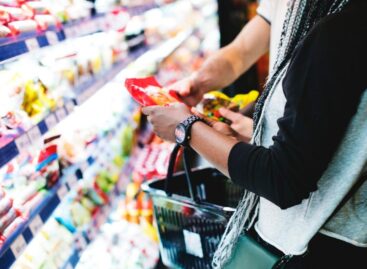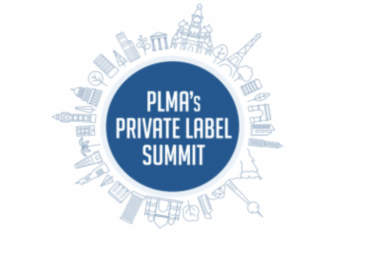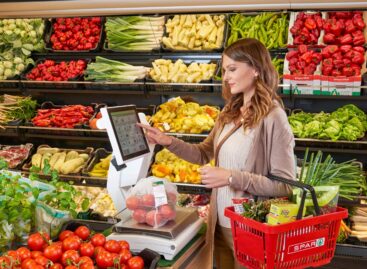PLMA 2024 Trade Show: ambitious manufacturers and retailers
Held at the end of May in the RAI Conference Centre in Amsterdam, the PLMA World of Private Label Show welcomed more than 28,000 professionals from over 125 countries, who wanted to see the latest trends in product development and packaging.
This article is available for reading in Trade magazin 2024/10
With 43,500m2 of exhibition space in 14 halls, the trade fair attracted 2,960 exhibitors from 73 countries. This year the Idea Supermarket, an innovation and product development area helped navigate this vast space, where over 60 supermarkets, hypermarkets, discounters, specialty stores and drugstores from around the world showcased their private label product ranges.
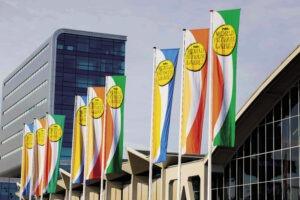
From drinkable seawater to tea you can spread on bread
Seawater and vinegar aren’t our favourite drinks, but product developers have managed to use them to create refreshing beverages. Among functional teas there is tea with added zinc for immune support, but also tea with herbs developed especially for men to help maintain prostate function. Who would have thought that tea could also be spread on bread? At the PLMA New Product Expo visitors could also see tea as a jelly bread spread. In the non-food sector private label manufacturers came up with surprising, unexpected and functional innovations such as probiotic wipes and nappies, which make it possible to collect urine samples from babies with illnesses.
With private label products retailers are supporting consumers
This year’s PLMA flagship event showed that shoppers can count on retailers to help them make the transition to a healthy and sustainable lifestyle – which is also more affordable. Top trends at the Salute to Excellence Awards included the use of recycled materials, but also a focus on place of origin, optimal quality and affordability. 72 retailers from 23 countries entered the competition with more than 550 new private label products, which were judged and awarded prizes in 99 food and non-food categories by an international panel of judges including former retailers, chefs, marketers, nutritionists and journalists. In 2024 Germany won 19 awards, followed by Denmark and Italy with 13-13 awards. The most successful retailer proved to be Germany’s Rewe Group, which won 9 awards, while the German drugstore chain Rossmann went home with 6 awards, just like the Irish drugstore Musgrave. Once again Italy was the most strongly represented country in this year’s competition.
Private label trends in the light of this year’s competition
It seems that the trend for health-conscious eating clashes with the really indulgent snack offerings. Retailers know very well that consumers are unpredictable and from time to time even health-conscious shoppers want some self-reward. For many categories sustainable sourcing is an important factor. Shoppers are looking for organic products, but social aspects such as a fair income and the livelihood of farmers aren’t overlooked. Interest in sustainability isn’t waning, either in terms of raw materials and ingredients or packaging materials. In packaging, there is a clear shift from recyclable materials to recycled materials. A similar trend is visible for plant-based alternatives to meat and dairy products. New plant-based foods are higher quality and tastier than before, and premium vegan private label products are now also available. In healthy eating there is growing focus on active lifestyle, as shown by the high protein content of many products. Non-food health and wellness forms part of the indulgence trend. Manufacturers are also improving their performance in the household cleaning segment. //
AMC had a bigger stand than ever before
What about Hungarian exhibitors at PLMA? This year there were 21 of them present at the stand of Agricultural Marketing Centre (AMC) on 198m² – a bigger floor space than ever before. AMC went to the PLMA with a collective stand for the 16th time. The purchasing managers of international retail chains could choose from extruded breads, gluten-free oatmeal and flour, herbal teas, dried fruit, fruit jams and pickles, sausages and smoked meats, honey, quick-frozen vegetables and fruit, cold-pressed oils, biscuits and various snacks. The stand also hosted AMC’s export development division, called the Hungarian Food Business Programme, where suppliers interested in Hungarian products were continuously registered. //
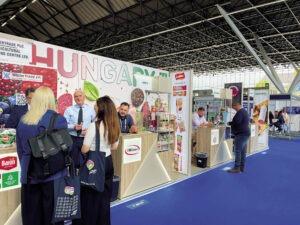
Related news
PLMA Live: record-breaking private labels
🎧 Hallgasd a cikket: Lejátszás Szünet Folytatás Leállítás Nyelv: Auto…
Read more >PLMA 2025: private labels draw on the power of surprise
🎧 Hallgasd a cikket: Lejátszás Szünet Folytatás Leállítás Nyelv: Auto…
Read more >Consumer centricity is key to private label growth – PLMA Summit in Copenhagen
🎧 Hallgasd a cikket: Lejátszás Szünet Folytatás Leállítás Nyelv: Auto…
Read more >Related news
MBH Analysis Center: The Hungarian economy may accelerate again in 2026, but the Iranian war carries serious risks
🎧 Hallgasd a cikket: Lejátszás Szünet Folytatás Leállítás Nyelv: Auto…
Read more >SPAR is preparing for an Easter rush: it is filling its stores with 570 tons of smoked meat products
🎧 Hallgasd a cikket: Lejátszás Szünet Folytatás Leállítás Nyelv: Auto…
Read more >Focus on the domestic fishing sector at SIRHA Budapest
🎧 Hallgasd a cikket: Lejátszás Szünet Folytatás Leállítás Nyelv: Auto…
Read more >



